Interviews
Interview with Glenn Hughes
“The Voice of Rock” Glenn Hughes, vocalist and bass player of Trapeze, Deep Purple, Black Sabbath, and Black Country Communion, for the release of his new solo album Resonate.
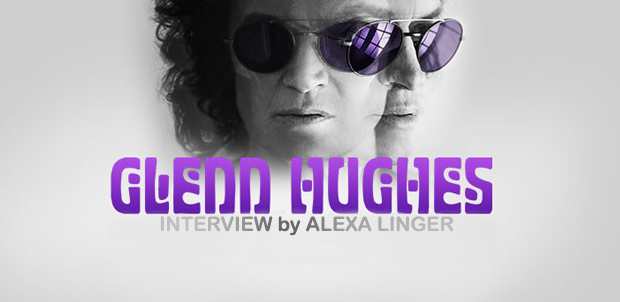
Interview with Glenn Hughes
By Alexa Linger
 Empire Extreme had the opportunity to talk to “The Voice of Rock” Glenn Hughes, vocalist and bass player of Trapeze, Deep Purple, Black Sabbath, and Black Country Communion, for the release of his new solo album Resonate. In this candid, no-holds-barred phone interview, he opens up about his addiction to cocaine, his time in Deep Purple, and his experiences being a musician since the age of eighteen.
Empire Extreme had the opportunity to talk to “The Voice of Rock” Glenn Hughes, vocalist and bass player of Trapeze, Deep Purple, Black Sabbath, and Black Country Communion, for the release of his new solo album Resonate. In this candid, no-holds-barred phone interview, he opens up about his addiction to cocaine, his time in Deep Purple, and his experiences being a musician since the age of eighteen.
EE: Thank you for taking the time to talk to me today. How are you?
GH: Great. I’ve never felt better!
EE: That’s great. Let’s talk about Resonate. I really enjoyed it. What was your inspiration for it?
GH: I always say this because people ask me about the same questions, but I’m going to give you a different angle… I had the left knee replaced in December and the right knee replaced in January. If you know about surgeries like that, it’s a six month recovery, which means I wouldn’t recover until May. Around April I started to feel comfortable on my knees. So, about February or March I was able to get my head around writing, I went into my studio and wrote these songs, not thinking I was going to do an album. I didn’t know I was actually going to record them. At the end of May, I was in Europe and I said ‘I got two weeks to spare here, I’ll get my band and we’ll go put this album.’ And I didn’t even warn them what we were going to do. I called them in the studio and said ‘okay – come down and we’ll spend a week recording these songs.’ As we finished the songs – I had nine – I thought ‘oh, God, now I have to come up with a title.’ And we came up with “resonate” as the title. All these months later we’re looking at this album called Resonate.
 EE: What song would you say is the foundation of Resonate? What started it?
EE: What song would you say is the foundation of Resonate? What started it?
GH: The song that started it was Long Time Gone. It was a song that I had written a few months before I went in for surgery. I was watching a movie and I started to hum the melody, you know? I went home and I started to realize it’s been eight years since I made an album, I’m gonna go record something. So, I just went and did it like that.
EE: I know your parents were incredibly supportive of you wanting to be a musician. Your father passed away earlier this year and I’m sorry for your loss. Would you say they inspired any of your music?
GH: Yeah. My father was very old with dementia; we knew he was going to die. I didn’t know he was going to die the day of the Hall of Fame, but I knew he was deathly ill the days before. As you know, there are Five Stages of Grief – there’s the anger, the hurt, the tears… I started to get intensely angry and then I started to get accepting. I realized I’m still here, don’t worry – you’re gonna be okay. The whole album is written about life stories for all – not so much for just me. It’s a healing album. You know, we live in a dangerous time economically, professionally, personally… it’s a difficult period for us all. My job on this album was to give some hope to people, you know? It was the fear… I don’t write songs about hobbits and dwarves and stuff… I write about the human condition.
EE: Listening to Resonate, one song that particularly caught my attention was How Long. I did a little bit of research and saw it might be Deep Purple related. But why write a song about it now? Was it just time?
GH: You know, everything happens for a reason. I’ve said this before and I’ll say it to you – I have no secrets. So, I’ll say this… The induction in New York was uncomfortable. I mean, I don’t even know those other guys in Deep Purple. We don’t have any relationship. I’m an only child and I’ve always globbed onto people and tried to be friends. And no – I have no problem telling people how it is without upsetting people, so I got a little bit pissed off and I’m thinking ‘you know, I’m gonna sing about that.’ I don’t particularly want to be friends with people that aren’t the people I want to hang around with, but I had no problem singing about it. I don’t want to fight and I’m also not a gossip about things I know nothing about. You’re the first person to ask me that question and I never tell a lie. But I’m just saying how long does this shit go on for? How long do we gotta be in the same room with each other and not speak to each other for forty years? It was bloody uncomfortable. I have ten of my people sitting at the next table going ‘what’s all that about?’ There’s a line between me and David [ Coverdale] and the other guy and Lars [Ulrich] is on my side going – it’s uncomfortable. And you know something… I don’t even know who the guys are. I know David Coverdale and we were really good friends.
 EE: With Deep Purple, what happened (in your own words)? What was the last straw? What made you leave for good?
EE: With Deep Purple, what happened (in your own words)? What was the last straw? What made you leave for good?
GH: Oh, when Tommy Bolin died. I think the band broke up simply because sex, drugs, and rock and roll. One of the wives – she was another member of the band and that was a big problem. The drugs became a problem, drinking, lying… It really was a case of sex, drugs, and rock and roll.
EE: I know your UK/European tour for Resonate was canceled. Any plans on another UK/European tour?
GH: Yeah, we’re gonna have some new shows Wednesday, the 23rd. We’re rescheduling the tour. The tour will start in England. It really derailed me for a couple weeks and then my team were onto it immediately. And the promoters wanted me to come back and there are some places I won’t go and some places I will go on the schedule, but it’s still the same amount of shows. It will be great and I get to headline the whole thing. I don’t have to worry about a band dropping out. I can’t believe Living Color had the balls to do that. I have nothing to say about that.
EE: I understand. I did read about that, so I know. (Laughs).
GH: I don’t think I could ever not show up. If my name is on a ticket, I’m gonna show up for people. Unfortunately, because we were partners together, the promoter had no choice but to cancel and we have to reschedule, which we’ve done successfully. And the great thing is, because Resonate is so honored by the fans and critics, we’re actually doing more business. Now that Resonate is out, people are getting to hear what it’s all about.
EE: Could you walk us through what went into the decision to leave Trapeze for Deep Purple? How did the guys of Trapeze take it?
GH: You know, when I left Trapeze, Deep Purple was the biggest act in the world in ’73, after Smoke on the Water. And Trapeze was selling out 5,000 seats while Purple were doing 15-20,000 a night. And it wasn’t a monetary reason I left Trapeze. The reason I left Trapeze was – and I’m going to be very honest with you – the management and the people behind the band weren’t stable enough to take the band to the next level. Same thing that was going on in my friends’ band ZZ Top… They had to change as well. But they didn’t have the knowledge to do that and I was getting tired of repeating myself. I was only twenty-one and I thought ‘it’s best for me to get out now’ because I had an opportunity to join someone that was so big and to bring my wares somewhere else.
 EE: I think it’s absolutely incredible to do what you’ve done at such a young age.
EE: I think it’s absolutely incredible to do what you’ve done at such a young age.
GH: It was difficult to leave Mel [Galley] and Dave [Holland]… I was twenty-one, they were twenty-five, but it broke my heart. I’ve been playing with them since seventeen. When you were an only child and they were like my family… Mel went on to join Whitesnake, as you know, and then passed away. And Dave went on to join Judas Priest, so we all well. But I think if Trapeze were to stay together, we probably would have been an arena act. I’d say by the end of the ‘70s we’d have gotten to be an arena act.
EE: I could definitely see that. What was the moment where you felt like ‘I made it’ or you knew your life would never be the same?
GH: In Trapeze – it wasn’t in Deep Purple. We were selling out auditoriums in Texas and we had a huge following in Mississippi, Texas, Georgia… And people thought we were from Texas, but we were actually from Britain. We were play the old coliseum – 1,000 seats sold out. It was before Deep Purple, so I did have a career before Purple.
EE: You worked with so many great musicians. If you had to choose a couple, living or dead, to collaborate with tomorrow, who would they be and why?
GH: The two dead ones would be to continue my work with Bowie. He lived with me for five months in ’75 and we did write some music together. And Jeff Buckley, simply because Jeff was way ahead of his time, had no fear of his voice and guitar. Just amazing. Also, Prince… Three dead guys. And living – I’ve got to be honest with you, Alexa… For me to work with anyone these days at my age, they gotta be a.) really nice and nurturing b.) honest and open. I don’t like people being strong-minded. And a little bit full of ego? I can deal with that. They’ve got to be honest and they’ve got to be accountable. I don’t like to mess around when I’m working. I’m fully addicted to the work.
EE: Can you describe your time in Black Sabbath in one word? Why?
GH: Difficult. Simply because I was in the depths of my disease and I don’t know if you know this story, but when I was on the road Phil Goldstein was my bodyguard and he went on to manage the first Guns ‘N Roses. So, his job was to keep me away from drugs and drinking. So, he literally slept next to me and shadowed me twenty-four hours a day, even in the shower kind of area. And it was difficult. I felt so embarrassed I was under those kind of restrictions. I wasn’t trying to break away from the band and get drugs. But then again I was hit in the face so hard by one of the crew guys that he broke the bones under my eye, consequently ending up in the hospital. It was embarrassing and difficult moment for me… but it made me the man I am today. Thank God this happened and this happened because I am the man I am because of that.
EE: What are the biggest differences between working with Trapeze, Black Sabbath, Deep Purple, and Black Country Communion?
GH: Well, Trapeze and Black Country were a little easier. I got to write more music in those two bands and I did more PR for the band because I was selected to do that. I loved Joe, Eric, Mel, and Dave and our time as band members. In Purple, I only know David – I didn’t even know Ritchie Blackmore, not really. They weren’t friends to me – not really. They were more like acquaintances… It was basically Tony and me. For me, it was a dark period. Joining Deep Purple was a piece of cake, but you join some bands when they’re so famous so already there they have agendas. You’re not involved in what’s going on and it’s like I was so damn young and selling out football stadiums and playing to 200,000 people a night was a pretty damn insane.
EE: Since you started playing, how has the music industry changed?
GH: The music industry is full of crooks and I hope they’re listening to this. This is going out to all the kids out there… get a really good attorney. Ask your mom and dad to lend a couple hundred bucks to get an attorney because the world is waiting for you to mess up. The music world is run by a bunch of crooks to this very day. I’m an honest guy. It’s just difficult. Everything I do now has lawyers around it. My music hasn’t changed at all. I’m still creating more music than I’ve ever done and I’m still grateful to do that. As I said on my album, I don’t bow down to the god of money, I don’t care as long as I get to do my art. All I’m saying to the young kids who are reading or listening to this is get yourself an attorney. Don’t do what I did. Don’t sign your life away to crooks, robbers, and deceitful, lying people. Because you’ll end up writing songs like I did on Resonate. (Laughs)
EE: What are your favorite songs to perform live?
GH: The new songs. I’m not a nostalgic guy… Resonate will be primarily what I play. It’s an incredible record.

Black Sabbath: 1986 Seventh Star Album Lineup: L-R: Dave Spitz, Glenn Hughes, Tony Iommi, Eric Singer, Geoff Nichols
EE: It really is. What is your bass of choice? What’s the oldest bass you own?
GH: My bass of choice is the Glenn Hughes Signature Yamaha Bass coming out in January and my oldest bass is a 1957 Fender Precision I use in Black Country Communion.
EE: What other bass players have inspired you? Who would you like to work with that you haven’t already?
GH: They’re both dead. Jaco Pastorius and James Jamerson. James, Detroit. Jaco, Florida. Both passed away, both fluid in groove and styles. Insanely under the influence. There’s no one in metal that plays the way I play. I’m coming from the school of Detroit where less is more. The soulful runs are very important for me, so I don’t play, like, the guitar. Bass playing is for bass players. There are bass players that play guitar and that doesn’t work for me. The bass drum and the bass guitar are both simpatico – it’s a groove that takes you all the way.
EE: I know you haven’t had a “normal” life – I mean, I read that David Bowie was living with you at one point. What is the craziest thing that happened to you? Like you still look back and think ‘what was I thinking?’
GH: Oh, man… Some of the things that happened to me were like… Look, when my bodyguard was killed in Indonesia in December of 1975, I was thrown in jail for his murder. When you’re in jail in a third world country and you’re the first act from the United States ever to play there and you have to give all the money back to the government that you made the night before – I’m talking over a million dollars in 1975 – you know you’ve got a problem. At that time, the governor of California sent people down there to help me and they were met at the airport with machetes and machine guns. You know, being in jail for three days was very uncomfortable. Having to say good bye to my bodyguard – he was a Royal Cadet bodyguard from Her Majesty’s Service – it kills that I was thrown in jail and experienced that. In fact, we’re making a movie about it next year. It will be something you’ll be able to get your head around next year.
EE: Thank you for sharing that. I knew a lot about you before, but I did lots of research to prepare and I never saw anything about that. Was it kept under-wraps?
GH: It might be. If you dig on the Internet for the Jakarta, there might be a snippet in there. Look for the Phoenix Rising movie – there might be a piece about in there.
EE: I will definitely have to watch that. I wanted to say congratulations on being sober for so long. How has being clean changed your perspective on music, ability to play, life, etc.?
GH: Number one, it effects my breathing. And breathing to me is as important as my singing. When I was getting loaded in the ‘70s, I befriended Stevie. He told me the breathing technique is how he sings from the diaphragm. Of course, I wasn’t. I have very big lungs – I had open heart surgery. You gotta learn how to breathe.
EE: When you’re home and not on tour or recording, what is your favorite thing to do? Do you have any hobbies?
GH: It used to be running until I blew out my knee. You know, it’s reading. I read a lot of spiritual books like Mark Nepo’s Book of Awakening that Steven Tyler got me last Christmas, which has really been helpful to me. I delve into a lot of spiritual work – not religious. I’m a spiritual-progressive man.
EE: I totally understand that. With grueling schedules and sleepless nights, how do you keep yourself sane?
GH: Sleep, sleep, and more sleep. And sleep. And keep my head down and keep out of gossip and other peoples’ way.
EE: Well, that’s all I have for you. Again, I want to thank you for the interview. I hope you have a great rest of the day. Thanks!
GH: Thank you.
About Author

Interviews
INTERVIEW WITH RENN HAWKEY OF THE YAGAS
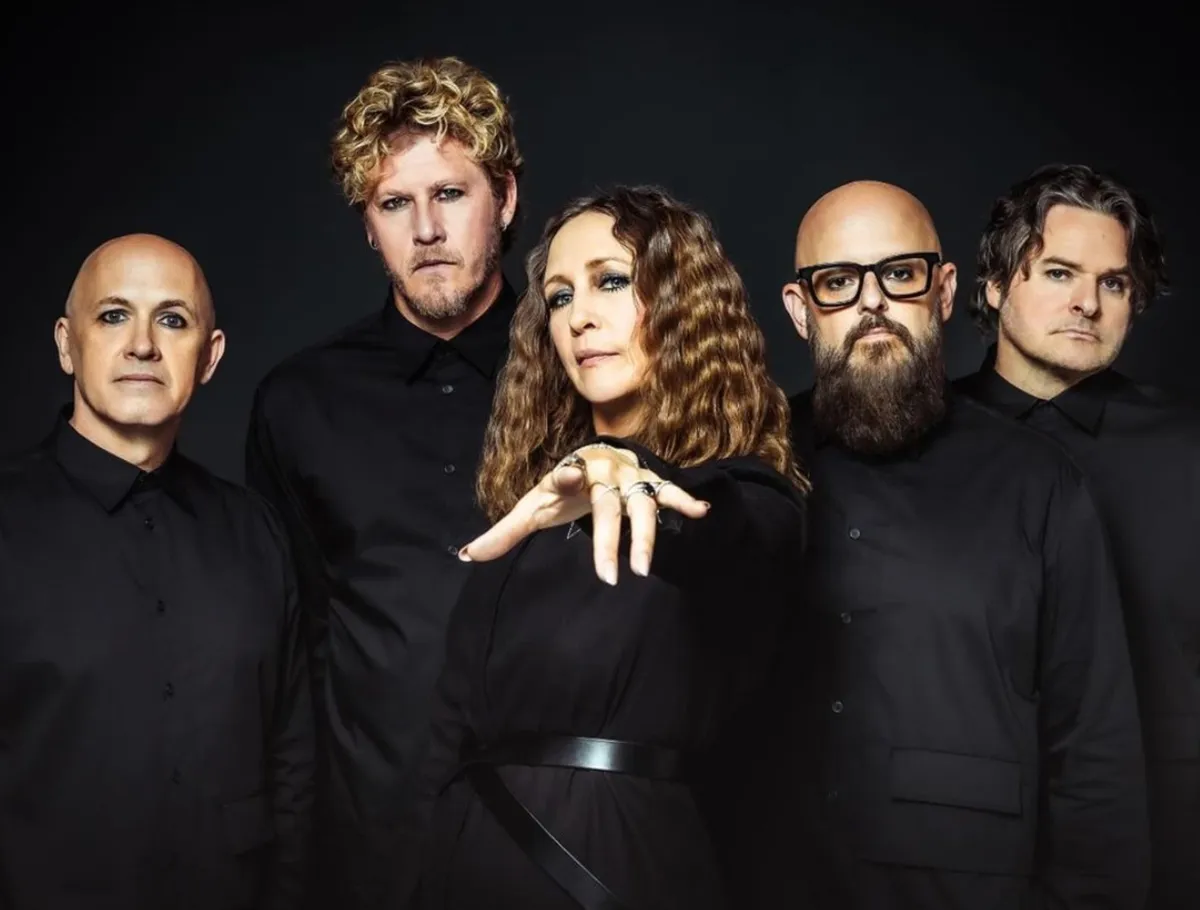

The Yagas are a new rock band fronted by actress Vera Farmiga and her husband Renn Hawkey (of Deadsy ).
The album Midnight Minuet just debuted and it’s an amazingly haunted and beautiful journey throughout many emotions. 10 songs that doesn’t label itself to any genre.
Empire Extreme got to talk to Renn about the album, its creation and life within music, art and film.
About Author
Interviews
Interview with Michael Rubin of King Falcon
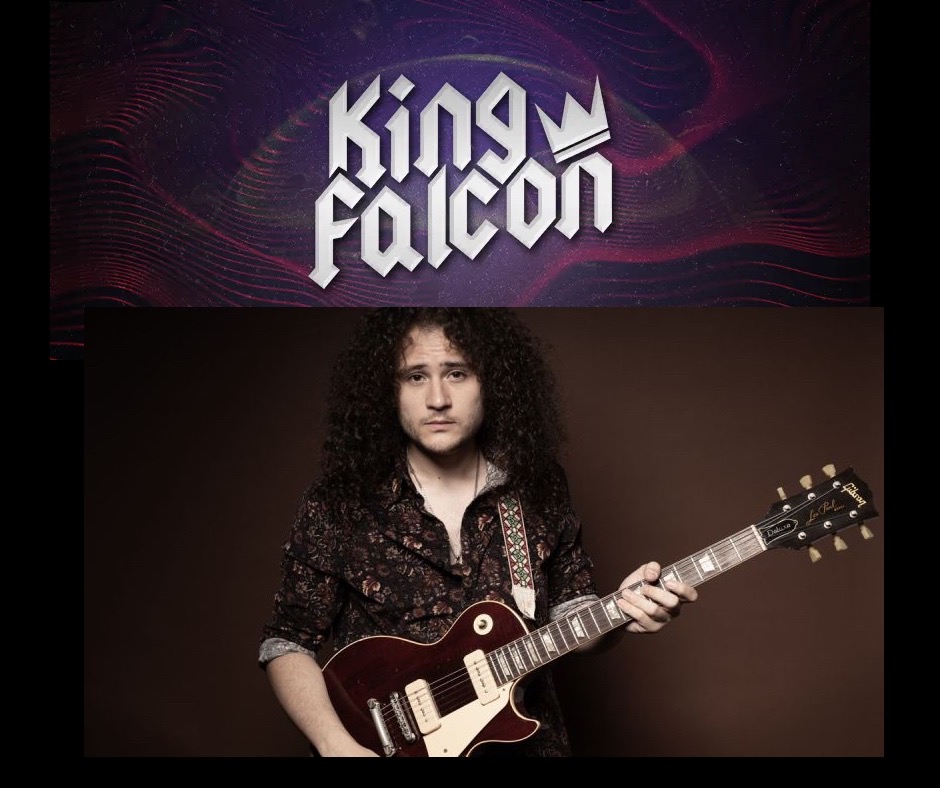
EMPIRE EXTREME GOT TO TALK TO MICHAEL RUBIN OF KING FALCON ABOUT ALL THINGS ROCK AND ROLL.
About Author
Interviews
INTERVIEW WITH BOONE FROGGETT OF OTIS
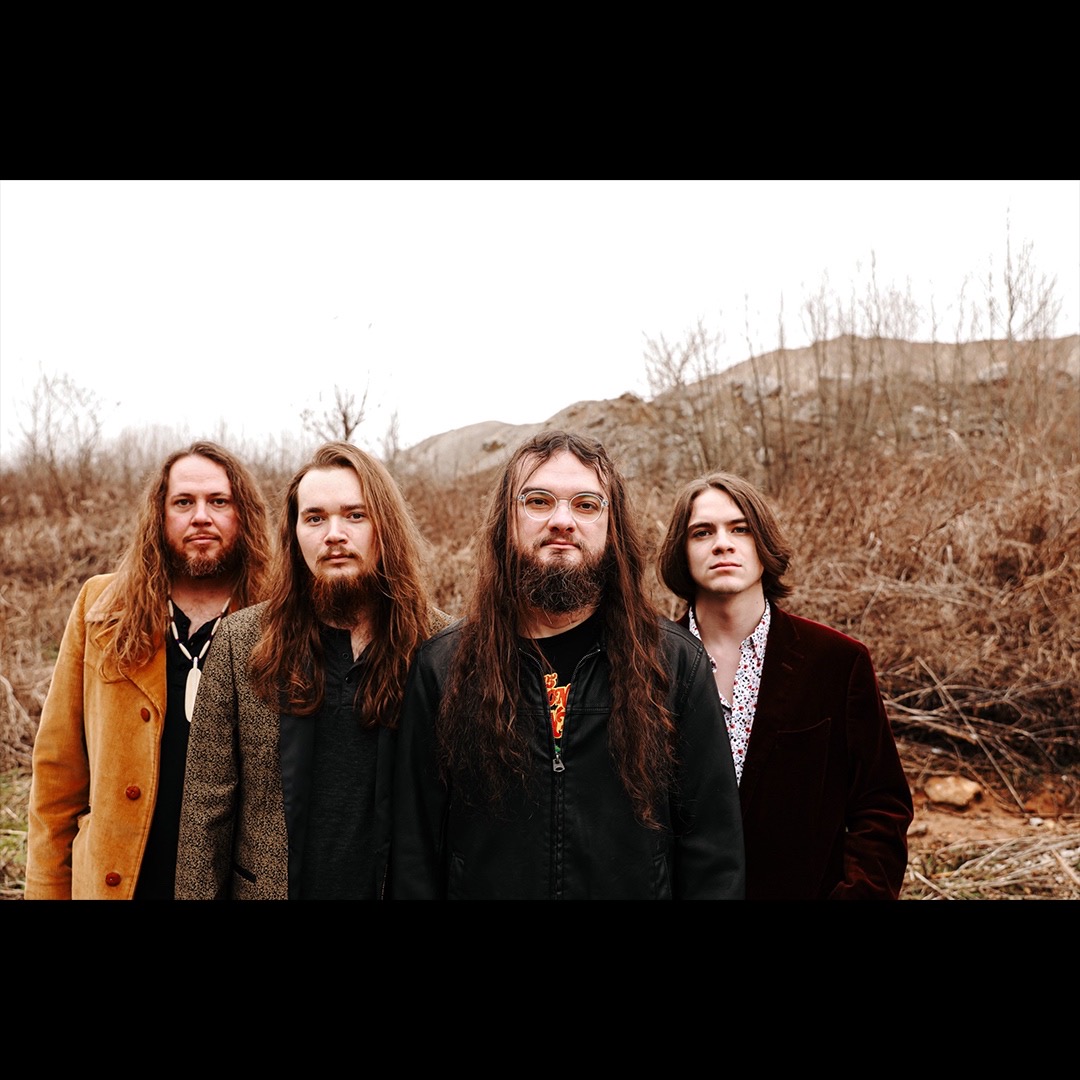
EMPIRE EXTREME GOT TO TALK TO BOONE FROGGETT FROM THE BAND OTIS, FROM KENTUCKY MUSIC TO HORROR MOVIES. CHECK IT OUT.
About Author
-

 Concert Reviews6 months ago
Concert Reviews6 months agoA REUNION OF EPIC PROPORTIONS
-
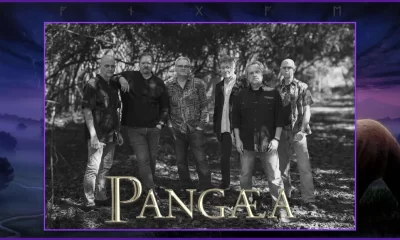
 Interviews12 months ago
Interviews12 months agoINTERVIEW WITH RON POULSEN OF PANGAEA
-

 Interviews12 months ago
Interviews12 months agoInterview with Michael Ranne of Leylines, Through the Eyes of the Dead
-

 CD Reviews1 year ago
CD Reviews1 year agoDevilSkin “Surfacing” EP
-

 CD Reviews1 year ago
CD Reviews1 year ago100 Watt Vipers “Wired For Power”


































You must be logged in to post a comment Login